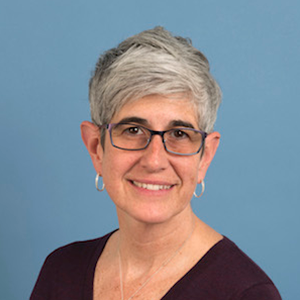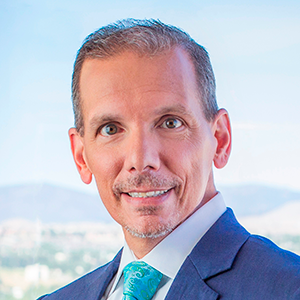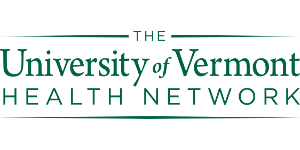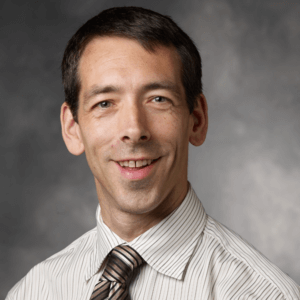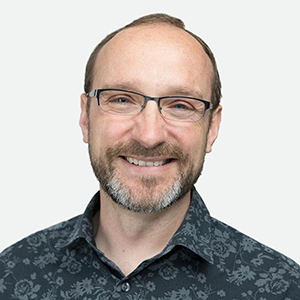Population sequencing of healthy individuals has huge value for preventive care. Recently, we have seen a rise in newly launched initiatives across various medical organizations. In this session we will hear updates from several of these studies to learn about their objectives, protocols, challenges, and more.
Session Chair Profile
Biography
Dr. Lajonchere is the Deputy Director for the UCLA Institute for Precision Health and Adjunct Professor in the Department of Neurology at the David Geffen School of Medicine at UCLA. Her background reflects a wide range of professional, clinical, and research experience across CNS disorders. She has spent her career on cross-cutting issues in psychiatric genetics and translational medicine. Through the Institute, Dr. Lajonchere worked collaboratively with thought leaders across the state of California to advance precision medicine and improve outcomes for patients. Prior to UCLA, Dr. Lajonchere held faculty appointments at USC where she conducted her own NIH research, and served as VP of Clinical Programs for Autism Speaks. More recently, she served as the Chief Scientific Officer for Cognoa, Inc, a digital healthcare company in Palo Alto and consults for several tech start-ups in the autism space focused on AI, robotics, and targeted therapeutics.
Speaker Profile
Biography
Prior to his current role, Dr. Smith led the development of the AdventHealth Orlando – Sanford-Burnham Translational Research Institute for Metabolism and Diabetes (TRI) as scientific director, and also continues in this role. Dr. Smith’s work bridges the gap between cell-molecular biology and clinical care. He has published more than 160 peer-reviewed scientific manuscripts, reviews and chapters, and is active in physician education. Dr. Smith earned his medical degree from the University of Texas Health Science Center. Prior to his tenure at AdventHealth Orlando, Dr. Smith was a faculty member at Pennington Biomedical Research Center for 15 years.
Speaker Profile
Biography
Dr. Tony Slonim is one of the nation’s most innovative and progressive health leaders. With a personal passion for improving health, Tony caught the industry’s attention by launching the Healthy Nevada Project®, the first and fastest-growing population health study combining genetic, environmental, social and clinical data to address individual and community health needs. With nearly 40,000 study volunteers enrolled across the state, the Project is returning clinically actionable results to participants and conducting extensive research. Recognized nationally as a thought leader, Modern Healthcare named Tony to its Most Influential Physician Executives and Leaders list. He has also been honored on Becker’s Hospital Review’s “Physician Leaders to Know” list since 2014. A quadruple board-certified physician with more than 120 publications and 15 textbooks to his name, Tony is a certified pediatric intensivist by training, a two time TEDx speaker.and chair of the American Hospital Association’s Systems Council representing more than 300 integrated health systems.
Talk
Healthy USA Project: Genetic Crowdsourcing Improving Health
This talk will cover 40,000 Nevadans have enrolled in a genetic study – each with a story of learning more about their health. Study volunteers are now being notified of their genetic health risks tied to heart disease and cancer. This is potentially life-saving information that more than 60% who tested positive may not have received otherwise.
Speaker Profile
Biography
Debra G. B. Leonard, M.D., Ph.D., is Professor and Chair of the Department of Pathology and Laboratory Medicine at the University of Vermont Larner College of Medicine and the University of Vermont Health Network. Dr. Leonard did her undergraduate education at Smith College and her medical and scientific training at New York University. She has been on the faculty at Case Western Reserve University School of Medicine, the University of Pennsylvania School of Medicine, and Weill Cornell Medical College. Dr. Leonard is an expert in molecular pathology and genomic medicine. She has developed a team to implement genome-informed medicine, including cancer, pharmacogenetics and genome population screening, for the University of Vermont Health Network. By summer 2019, a pilot of sequencing 1K patients’ genomes will be initiated with the goal of genome testing for half the patient population in the region.
Speaker Profile
Biography
Born and raised in Scotland, Euan Angus Ashley graduated with 1st class Honors in Physiology and Medicine from the University of Glasgow. He completed medical residency and a PhD in molecular cardiology at the University of Oxford before moving to Stanford University where he trained in cardiology and advanced heart failure joining the faculty in 2006. His group is focused on the application of genomics to medicine. In 2010, he led the team that carried out the first clinical interpretation of a human genome. The paper published in the Lancet was the focus of over 300 news stories, became one of the most cited articles in clinical medicine that year, and is currently featured in the Genome Exhibition at the Smithsonian in DC. The team extended the approach in 2011 to a family of four and now routinely apply genome sequencing to the diagnosis of patients at Stanford hospital where Dr Ashley directs the Clinical Genome Service and the Center for Inherited Cardiovascular Disease. Dr Ashley is a recipient of the National Innovation Award from the American Heart Association (AHA) and a National Institutes of Health (NIH) Director’s New Innovator Award. He is a Principal Investigator of the Myocardial Applied Genomics Network (MAGnet), a member of the leadership group of the AHA Council on Functional Genomics, and a member of the Institute of Medicine (IOM) of the National Academy of Sciences Roundtable on Translating Genomic-Based Research for Health. He is a peer reviewer for the NIH and the AHA as well as journals including Nature, the New England Journal of Medicine, the Lancet and the Journal of Clinical Investigation,. He is co-founder of, and advisor to, Personalis, Inc, a Menlo Park based genetic diagnostics company.
Speaker Profile
Biography
Chris Lunt is the chief technology officer for the All of Us Research Program. Chris has more than 20 years of experience designing web services and other data platforms, and has spent the last 10 years working as a technology executive. He joins the NIH from GetInsured, where he served as the vice president of government solutions for the past 4 years. There he worked with the federal government, states, and the vendor community to improve health insurance shopping and enrollment systems. Previously, Chris worked as an HHS entrepreneur. He has also served as the vice president of engineering at Readyforce, the chief executive officer of Nombray, the founder and vice president of engineering at WisdomArk, and the senior director of engineering at Friendster.







